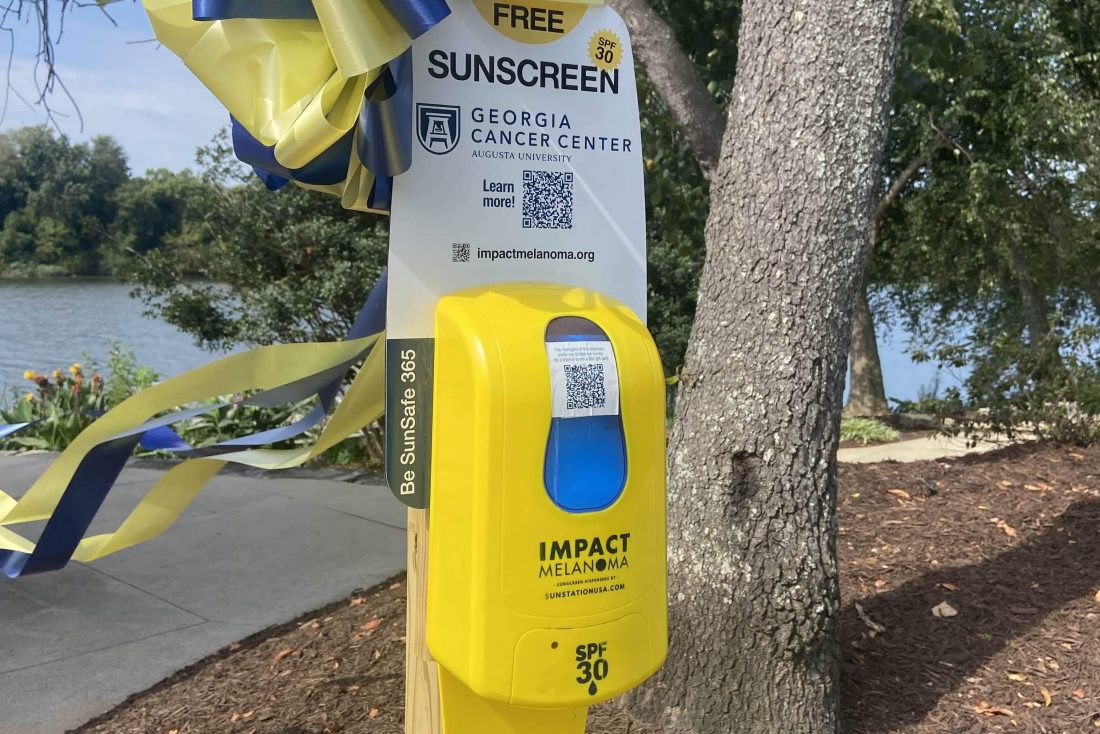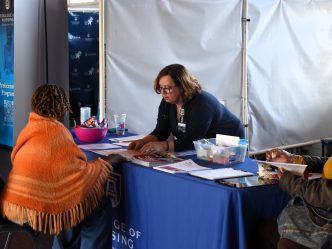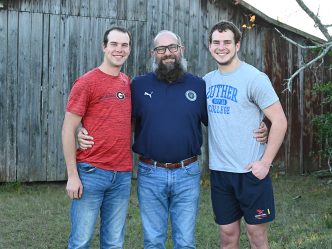Skin cancer remains the most common cancer in the United States with over 100,000 diagnoses projected in 2025, according to the American Cancer Society. It is also projected that, by 2040, it will rise and become the second most frequent cause of cancer-related deaths.
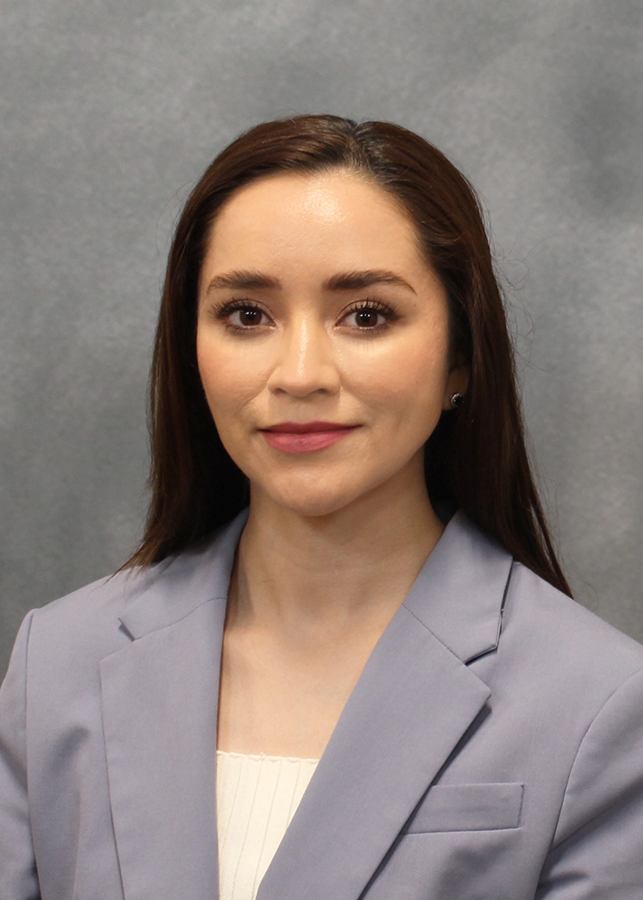
“Although skin cancer is the most common cancer in the United States, it is also one of the most preventable given the right resources and is highly treatable when detected early,” said Brenda Santellano, MD.
Affordability of sunscreen, lack of patient education, deprioritization of protection and scarcity of specialist practitioners are many of the factors that play into the rise of skin cancer, not just in the CSRA but across the state of Georgia.
To combat this rise, the Georgia Cancer Center at Augusta University is working on two skin cancer-focused projects, one aimed at prevention and the other aimed at detection, with both stressing the importance of education. Thanks to funding from Unite in the Fight Against Cancer, a one-mile walking fundraiser that celebrates and honors all who have been affected by this disease while raising funds for patient-centered programs, both projects are currently underway.
Sun Safe Augusta: Safeguarding Skin Health with Sun Safety Education and Public Sunscreen Access is a collaboration between the Sun Safe Team at the GCC and the Medical College of Georgia at Augusta University, along with IMPACT Melanoma with the goal of providing free sunscreen across the CSRA.
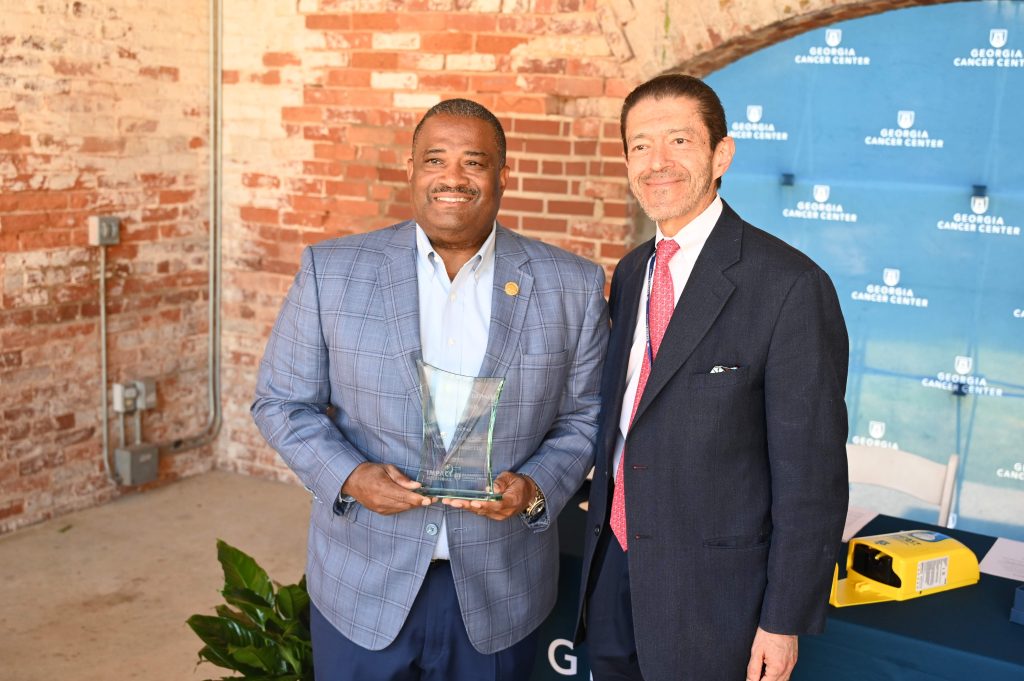
“This program provides the resources for sun protection but also the education and knowledge to make more informed, conscious decisions daily about their general health and well-being to continue doing things we all enjoy, like spending time outdoors,” said Mitchell Hanson, an MCG student and one of the leaders of the Sun Safe Team.
The team has installed and maintained nine sunscreen dispenser stations for public use, with the latest one having been installed in Boeckh Park in North Augusta. Other areas include Pisgah Road, Medac Garage, the boat canal at Enterprise Mills and other areas along the Greenway. Each dispenser has a QR code a user can scan for additional information, and they will be maintained by students at MCG and checked weekly by park service members to ensure they are in proper working order for years to come.
“Given the significant role of early-life sun exposure in the development of melanoma, implementing a long-term sunscreen intervention could greatly enhance skin cancer prevention,” said Santellano.
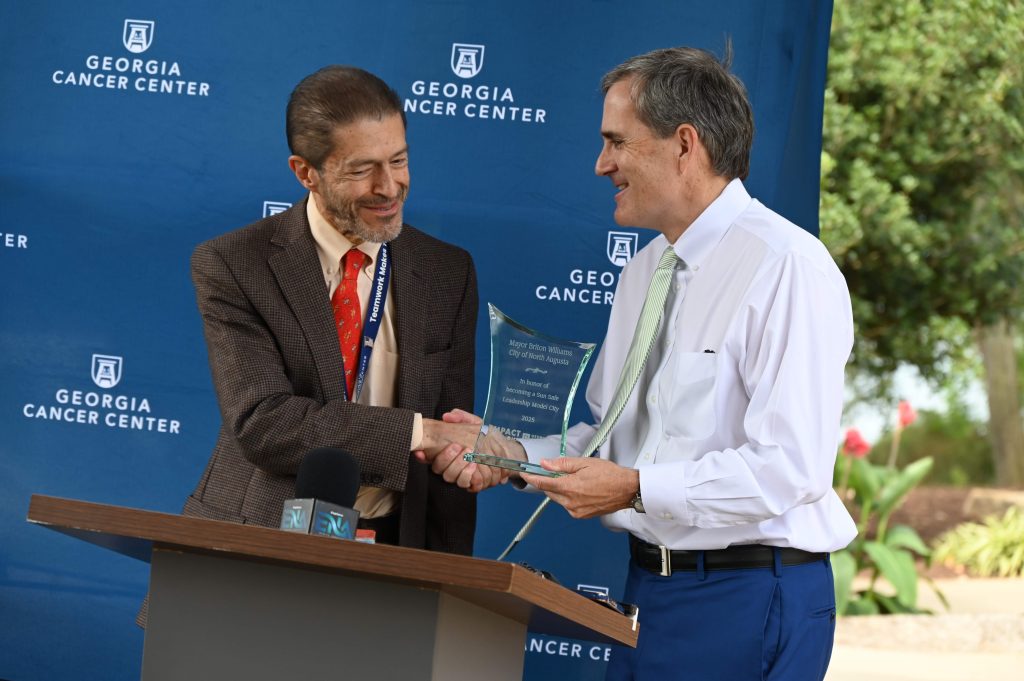
The second project, Teledermatology Serving Georgia, is focused on the scarcity of specialist practitioners across the state of Georgia. This collaboration between the GCC and MCG’s Department of Dermatology, with plans to expand to the Phoebe Family Medicine Residency Program in Albany, Georgia, focuses on training residents on the importance of skin cancer screening, along with providing training on more effective dermatoscopes and software for detecting skin cancer.
“Due to the scarcity of specialist practitioners, specialty health care in skin cancer screening and dermatologic care remain beyond the reach of many citizens in Georgia, especially in more rural areas,” said Kendall Buchanan, MD, a dermatologist with Wellstar MCG Health and a professor in the Department of Dermatology at MCG.
By providing the opportunity to further skin cancer education with more advanced tools, they hope that future care providers will not only stress the importance of prevention and detection of skin cancer to their patients but also be able to provide improved care, should a case arise in a patient.
“This opportunity to expand medical care and educate the next wave of primary care providers is critical to the health of our state, and we want to push the education even further,” said Jorge Cortes, MD, a principal investigator on the project and the director of the GCC.
The teledermatology investigators include Santellano; Cortes; Buchanan; Kenza Mamouni, PhD; Rhea-Beth Markowitz, PhD; and Loretta Davis, MD. The team has goals to bring skin cancer education to barbers and tattoo artists in Georgia. They believe that these professions can be the key to early detection, as they work closely with the scalp and skin, and can alert their customers to spots that they might not otherwise be able to see.
 Augusta University
Augusta University
